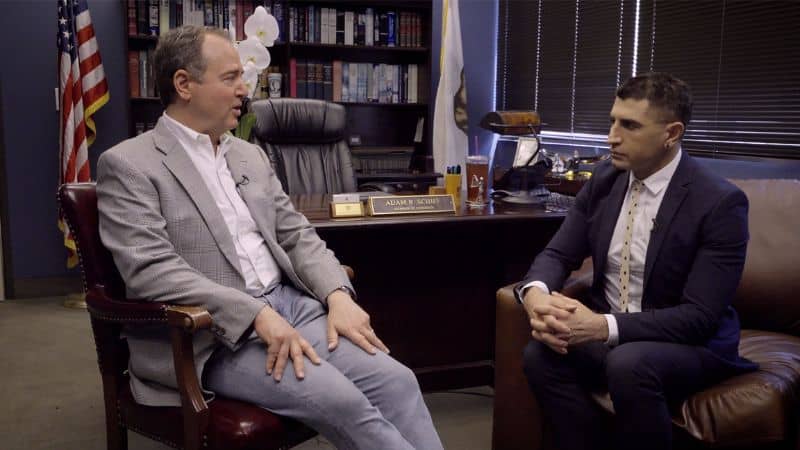Victims would be tortured and killed while these atrocities would be recorded by the victims’ smartphones and returned to their families. This incredibly cruel transformation of a smartphone into a war weapon is just one among numerous shocking revelations brought about by Motherland, a remarkable documentary by Armenian American filmmaker, journalist, and activist Vic Gerami. The film is another proof that war, as Edwin Starr sang decades ago, is good for «absolutely nothing». Still, the events revealed by Gerami not only very well explain the anger that pervades his film from the beginning to the end, starting with his fast and rhythmic voice-over narration that first resembles a TV ad and then the shooting bursts of a machine gun. They also justify the desire to do something about it because, as someone quoted by Gerami once said, «if nothing changes, nothing changes».
Official Trailer ‘Motherland’ Documentary Film from Vic Gerami on Vimeo.
Radio Yerevan
One of my first memories of Armenia is the jokes of Radio Yerevan. In the English language, they are known as Armenian Radio jokes. They were very popular in the Soviet Union and other countries of the former Communist Eastern bloc since the second half of the 20th century. Radio Yerevan jokes were emblematic of a particular type of humour, permeated with self-irony that, simply put, enabled people to alienate the repression and make their suffering more bearable. This, I guess, was the reason the jokes were named after Armenia because the suffering of Armenians in the Soviet Union was doubled, as not only their civil rights but also their rights as an ethnic minority were abused. There is no time to go into detail, and Gerami only briefly touches on this part of the history. Yet, to understand the rage of Motherland, we need to take into account another historical aspect.
The film is another proof that war, as Edwin Starr sang decades ago, is good for «absolutely nothing».
Mount Ararat
Yerevan is the capital of the Republic of Armenia, but the Armenians have been for millennia living in the much larger region between the Kaspian and the Black Sea, south of the great mountain range of the Caucasus and fronting the northwestern extremity of Asia. Other nations have contested their right to this territory, a telling example is Mount Ararat which generally symbolizes the Armenian homeland, but it is also a significant landmark in Kurdish history while the mountain itself lies in the territory of the Republic of Turkey. The turbulent past of the region drove many Armenians away. They found a home in other parts of the world and marked the cultures of other nations. Not only famous Soviets such as Sergei Parajanov, the film director, Garry Kasparov, the former world chess champion, and Aram Khachaturian, the celebrated conductor, and composer, are of Armenian origin. So are also the American socialite and social media personality Kim Kardashian, Andre Agassi, the world-famous American tennis player, and French singer and actor Charles Aznavour.

Another genocide
The Italian fashion designer Georgio Armani is a son of an Armenian genocide survivor. The genocide in question refers to the physical annihilation of Armenian people living in the Ottoman Empire that started in the spring of 1915 and caused the death of at least 664,000 but possibly even more than one million people, who died either in massacres and individual killings, or from systematic ill-treatment, exposure, and starvation. The term genocide and its codification in international law have their roots in this mass murder of Armenians in 1915 and 1916.
Motherland, however, is not about that genocide but about the one that took place in the present day. It started on September 27, 2020, when Azerbaijan, supported by Turkey, using Syrian, Libyan, Pakistani, and jihadist mercenaries and applying the most sophisticated battlefield technology, including illegal and banned weapons, attacked the Artsakh Republic, formerly known as Nagorno – Karabakh. It is very probable that you did not hear about it. This, exactly, is the point of Motherland and the main reason for Gerami’s anger.
Motherland, however, is not about that genocide but about the one that took place in the present day.
Against «both-side-ism»
Not that there were no news reports about the events. Gerami assembled the clips from video reports by several TV news media in his documentary. We hear outraged reporters. «If you want to know what a war crime is, this is it», is blunt one of them. Gerami interviewed political analysts and US and British politicians who condemn the events. He presented testimonies of witnesses who were lucky to survive – Artsakh war veterans, young men who were 18 or 20 years old when they were called to fight a much stronger and better-armed enemy, and refugees, ordinary people who flew in their pyjamas and found shelter in Yerevan, Armenia. They all remember that bridges, water and electricity sources, hospitals, and schools were bombed first. Yet, the international community remained «strangely silent», concludes Gerami, who rightfully presumes the attack on Armenia might be the precursor of Russia’s attack on Ukraine. However, the view that both sides bear responsibility for the events, shortly «both-side-ism», prevailed. Gerami cynically named this approach the «Neutrality Lala Land» to underline the illusionary nature of the idea of neutrality and the fact that those who talk about it actually use it as an excuse to do nothing.
Another manifestation of the illusionary position of neutrality is the ideal of objectivity. This ideal has already done a lot of damage, for example, in journalism. It is thus easy to agree with Gerami that speaking up for the people robbed of their voice is the only right thing to do. The war is good for «absolutely nothing», but it will not cease to exist if we fail to condemn it aloud. Motherland is an angry film about human cruelty. It is hard to watch, but it will not let you turn away. And this is good.



